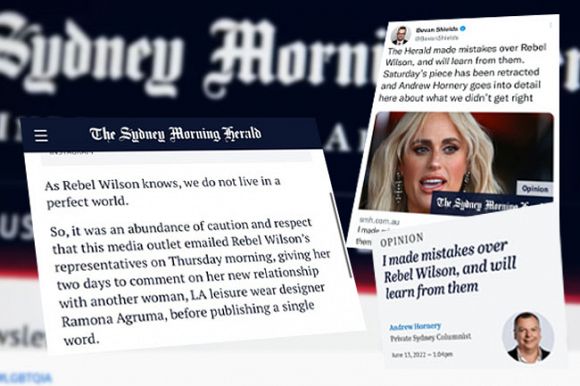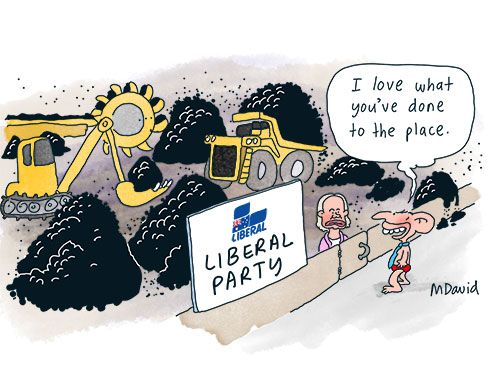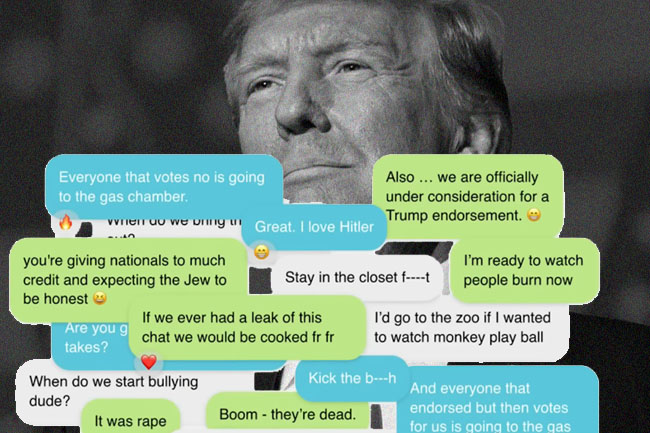Before journalists can repair their broken institution, they first need to admit they have a problem.
But while journalists behave like they are untouchable and beyond critique, Australian news media standards will continue to degrade, and audience trust will decline.
When journalists are criticised, whether it be instances of bias, misrepresentation, factual errors or terrible ethics on display, we see a familiar pattern. First, they complain of “trolling” and “abuse” from whoever it is who points out their flaws. Then their colleagues jump in to defend them and join in the chorus of criticism against those who complain. Rinse, repeat.
This collective circling of the wagons and in-group defensiveness creates an impenetrable culture that refuses to self-reflect or confront problems from within. Like a snake eating itself, this downward spiral is unsustainable.
Every now and then, in high-profile cases of journalistic wrongdoing, a sort-of-apology or correction is produced. Bevan Shields, editor of the Sydney Morning Herald, eventually wrote a correction when he mischaracterised the NSW train shutdown as a workers’ strike.
But this was only after Friendlyjordies published leaked screen prints which showed Shields’ own news team had urged him not to call it a strike and he had overruled them. An apology weeks later that justified the error by saying other media organisations made the same biased mistake isn’t a genuine apology.
Shields was under fire again more recently when Sydney Morning Herald gossip columnist, Andrew Hornery, caused international outrage when he threatened to out actress Rebel Wilson and then complained when the actress gazumped him by using Instagram to announce her relationship with fashion designer, Ramona Agruma.
Although eventually an apology was written by both Hornery and Shields, and the original piece was retracted, this was only after Shields first wrote a piece defending Hornery’s column.
The initial defensiveness by Shields is reminiscent of the knee-jerk reaction of almost all mainstream journalists when they are criticised. The problem is always with the people doing the criticising – usually the audience, usually Twitter users – and never with them. Their branding of all critique as “trolling” is a way of asserting their power, an attempt to delegitimise those who critique them as nothing more than members of “sewer Twitter”.
In Shields’ case, there was a particularly interesting insight into who he blames for his own errors and the related backlash, revealed in one of the screenshots leaked to Friendlyjordies.
In response to a Sydney Morning Herald customer service team member asking for help in responding to complaints from readers about his train strike error, Shields replied:
‘No response needed. People have been whipped up on Twitter by a few activist accounts and I’m not worried at all.’

It is telling that a mistake Shields was eventually forced to sort-of-apologise for, one he was criticised for by hundreds of people on Twitter, including the union representing train workers who were the victims of the misrepresentation, and an error he made even after his own staff told him he had it wrong, if something he initially said was ‘whipped up on Twitter’ by ‘activist accounts’.
One of these so-called “activist” accounts that critiques media and is called a “troll” because of it is @PRGuy17. This week, PRGuy unmasked himself in an exclusive by Friendlyjordies. Jeremy Maluta – who is just an average guy and does not work for Victorian Premier Dan Andrews – revealed his motivation to start the account in his fascinating interview with Jordan Shanks.
He says was inspired to start the PRGuy account during the pandemic because he wanted to turn the same “sensational crap in the media about Dan Andrews”, using the same “hyperbole, the same screeching headlines”, to “tell a different narrative, perhaps a more truthful narrative”.
Maluta says when he started doing this, people were so ready for something different, it “kind of exploded and went viral”. His account has almost 100,000 followers and regularly trends on Twitter.
That’s the thing about critiquing the media. Those of us who do it can easily see that we are not alone with our concerns. It’s not just a few people on Twitter — indeed, 500,000 people signed former Prime Minister Kevin Rudd’s petition for a royal commission into media diversity and the Murdoch media
This shows it wasn’t just “activists” worried about Shields’ anti-union bias or his newspaper’s unethical attempted outing of Rebel Wilson. It was not just PRGuy who was fed up with the anti-Labor pandemic coverage and rabid anti-Dan Andrews attacks. When one person points out the problems, thousands, sometimes hundreds of thousands, flock to agree. This is evidence problems with the news media are real and are not made up or exaggerated by those who complain.
Perhaps if journalists saw “activists” like PRGuy and others who point to mistakes, distortions, lazy thinking and unfair, one-sided coverage as canaries in the coalmine, instead of “activist trolls”, they would have a better sense of why their audiences are choosing not to click, not to subscribe and often to unsubscribe in outrage.
Without trust in journalism, there is no audience and without an audience, journalism does not exist. It’s time for the news media to end their defensiveness and instead urgently look to feedback about how they can respond to their audiences’ concerns. Democracy needs a strong news media, but in its current race to the bottom, the future looks bleak.
Dr Victoria Fielding is an Independent Australia columnist. You can follow Victoria on Twitter @DrVicFielding.
Related Articles
- Mainstream journalists are failing to speak truth to power
- Media propaganda a scourge on democracy
- Mainstream media applauds Morrison's 'let it rip' strategy
- Flashback 2012: Prominent Liberal says Gillard should be kicked to death
- Media inequality shows Labor scandals covered more than Liberal
 This work is licensed under a Creative Commons Attribution-NonCommercial-NoDerivs 3.0 Australia License
This work is licensed under a Creative Commons Attribution-NonCommercial-NoDerivs 3.0 Australia License
Support independent journalism Subscribe to IA.














